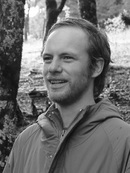Kontakt
Institut für Ethnologie
Oettingenstr. 67
80538 München
Project Details
Exploraciones subterráneas – Siguiendo la (in)visibilidad geotérmica de los Andes chilenos (Disputation: 22.7.2021)
Supervisor: Prof. Dr. Eveline Dürr
Geothermal futures: exploring environmental knowledge through scientist and indigenous people engagement with geothermal energy potentials of Andes mountains
Chile represents one of the largest undeveloped geothermal areas in the world (Sanchez-Alfaro et. al., 2015). Geothermal energy is the energy contained as heat in the Earth's interior (Barbier, 2002). In addition, the National Politics of Energy projects for the next years have 70% energy produced from renewable sources (including geothermal energy). The main areas of geothermal potential are located in the high Andes and are associated with volcanoes. These areas are undeveloped and scientists are starting to explore this huge potential. Since 2000, Chilean law regulates geothermal energy and concessions. Geothermal energy projects in Chile are understood as a clean and sustainable energy source, in contrast with many other energy sources (hydroelectricity and imported fossil fuels). Nevertheless, social and political dimensions of energy are being recognised as a central challenge (Otero, 2015), involving multiple and divergent perceptions of energy and practical engagement. Additionally, the South-Central area of the country (Araucanía and Los Rios region), which has an important source of geothermic energy, is where a big concentration of Mapuche, the largest ethnic group in Chile, live (INE, 2012; Bengoa, 2010). As a consequence, this project seeks to explore these social and environmental issues more in-depth through ethnographic fieldwork in order to build a greater understanding of these future energies.
Engineering expertise increasingly sees the challenge of energy in terms beyond the purely technical aspects. This proposal starts from the assumption that energy is no longer a technical problem that should be resolved exclusively with the tools of natural sciences but that it is a political and ethical phenomenon that requires the collaboration of different actors, whose forms of knowing are often incommensurable (Latour, 2004; Stengers, 2014, Simonetti, 2018). On the other hand, environmental knowledge is imbricated in hierarchical reconfiguration of expert and local knowledge (Peluso 1994), entangled in complex networks, which necessarily produce frictions (Tsing 2005) over access to environmental resources.
In this project, I attempt to move beyond a simplistic dichotomy of local and expert knowledge in order to uncover the numerous intersections, involving indigenous people and scientists brought together around future geothermal energy projects. Although there are interesting efforts on the state of geothermal energy in Chile (Sanchez-Alfaro et. al., 2015; Otero, 2015), these studies have been focused on political, economic and social barriers, without going deeper in the diversity of knowledge involved. Nevertheless, rather than just studying two different ways of knowing, this project aims to illustrate the current challenges of environmental knowledge of geothermal energy projects, exploring tensions and collaboration between them.


